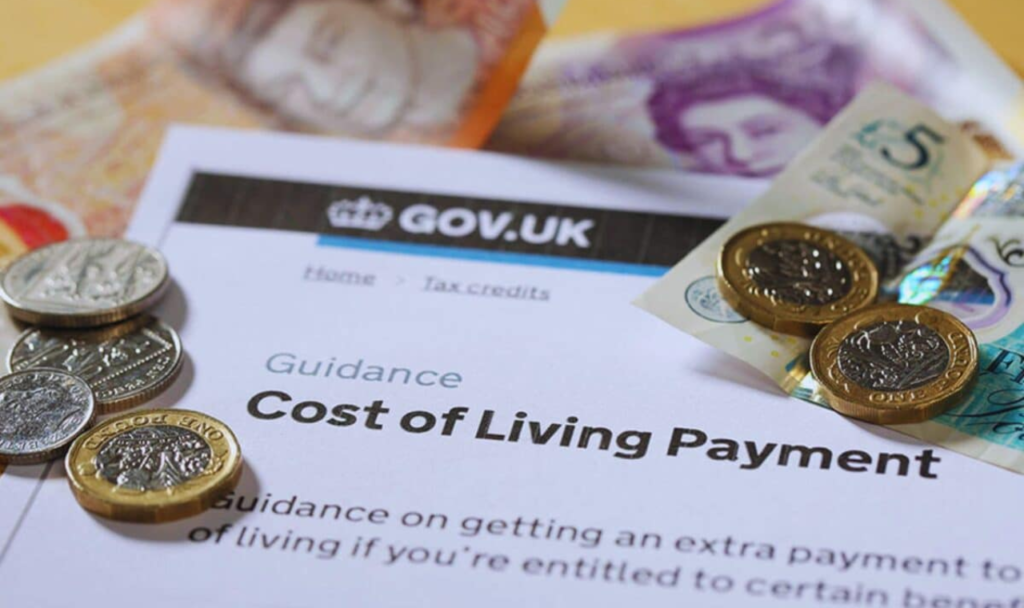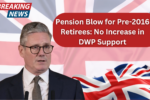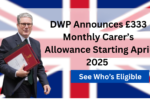With the ongoing cost-of-living crisis putting significant financial pressure on households across the UK, the government has introduced an additional £90 Cost of Living Payment to help struggling families. This payment is part of a broader package aimed at supporting low-income households with rising costs, including food, energy bills, and daily essentials.
In this article, we will break down who qualifies for this extra payment, when and how it will be distributed, and what other support is available to ease the financial burden on UK families.
What is the £90 Cost of Living Payment?
The £90 Cost of Living Payment is an extra one-off financial aid provided by the UK government to help individuals and families cope with the rising cost of living. This payment is part of a wider financial support scheme introduced in response to increasing inflation and economic pressures affecting low-income households.
This initiative follows previous Cost of Living Payments that were issued in 2023 and early 2024, including larger payments of £301, £300, and £299, aimed at those on means-tested benefits. The £90 payment serves as an additional boost to those still facing hardship.
The payment is automatic, meaning eligible households do not need to apply for it. If you meet the criteria, the funds will be deposited directly into your bank account.
Who is Eligible for the £90 Cost of Living Payment?
To qualify for the £90 payment, you must be receiving at least one of the following means-tested benefits during the eligibility period:
- Universal Credit
- Income-based Jobseeker’s Allowance (JSA)
- Income-related Employment and Support Allowance (ESA)
- Income Support
- Pension Credit
If you are currently receiving one of these benefits, you should automatically receive the payment. However, if you are unsure of your eligibility, you can check through the official UK government website.
For Pension Credit recipients, it’s important to note that if you are eligible but haven’t yet applied, you can still claim it retrospectively for up to three months. This could help you qualify for the payment, as well as additional financial support.
How and When Will You Receive the Payment?
The £90 Cost of Living Payment will be paid directly into bank accounts, using the same payment method as your usual benefits. This means no applications are necessary the payment will be processed automatically for those who qualify.
The government has not yet specified the exact date for this particular payment, but based on previous Cost of Living Payments, it is expected to be rolled out in mid-to-late 2024.
Key facts about the payment process:
- No application is required – If eligible, you will receive the payment automatically.
- The payment will go into the same account where you receive your benefits.
- Payments are issued in phases, so some people may receive them slightly earlier or later than others.
Be sure to check your bank statements and benefit statements around the expected payment period.

How Can This Payment Help Families?
The £90 payment aims to help families and individuals manage essential expenses, such as:
- Grocery bills – Food prices remain high due to inflation.
- Energy bills – Despite some reductions, gas and electricity costs are still significantly higher than before.
- Household essentials – Items such as toiletries, clothing, and baby supplies have also seen price hikes.
While £90 may not seem like a significant amount, for many struggling households, it can help cover a portion of these essential living costs.
Additional Government Support Available
Apart from the £90 Cost of Living Payment, there are several other government schemes that families and low-income individuals can access for further financial support.
1. Pension Credit
For older citizens, Pension Credit provides extra financial help for people on low incomes. It also acts as a gateway to other benefits, such as housing support, council tax reductions, and free NHS dental care.
2. Household Support Fund
Local councils have access to the Household Support Fund, which helps struggling households pay for essentials like food, utility bills, and emergency costs. Each council has different rules, so check with your local authority.
3. Energy Bill Support
If you’re struggling with energy costs, you may be eligible for:
- The Warm Home Discount – Provides a £150 discount on electricity bills for those who qualify ..
- The Winter Fuel Payment – Helps older people with heating bills during cold months.
- The Cold Weather Payment – Offers extra help during particularly cold spells
4. Free School Meals & Childcare Support
For families with young children, support includes:
- Free school meals for eligible households.
- Tax-free childcare schemes to help cover nursery costs.
Beware of Scams
Since these payments are issued automatically, scammers may attempt to trick people into sharing personal details under the guise of applying for the benefit.
How to Spot a Scam
- The government will never ask you to apply for the payment or provide bank details via text, email, or phone calls.
- If you receive a suspicious message, do not click any links instead, report it to Action Fraud.
- Always check information directly from official government websites to verify legitimacy.
Final Thoughts
The £90 Cost of Living Payment provides essential relief to struggling UK households, particularly those on low incomes. While it may not solve all financial difficulties, it is a step towards helping families manage rising living costs.
To stay updated on payment dates and eligibility, always refer to gov.uk and be cautious of potential scams. Additionally, take advantage of other government support schemes, such as Pension Credit, the Household Support Fund, and energy bill discounts, to maximize the financial help available.

Pankaj Kumar is a journalist at Chandigarh X, covering admit cards, recruitment, and government schemes. His articles provide readers with detailed insights into application processes, eligibility, and exam updates.
Outside of work, Pankaj enjoys traveling, fitness, and cricket, often participating in local matches on weekends.



